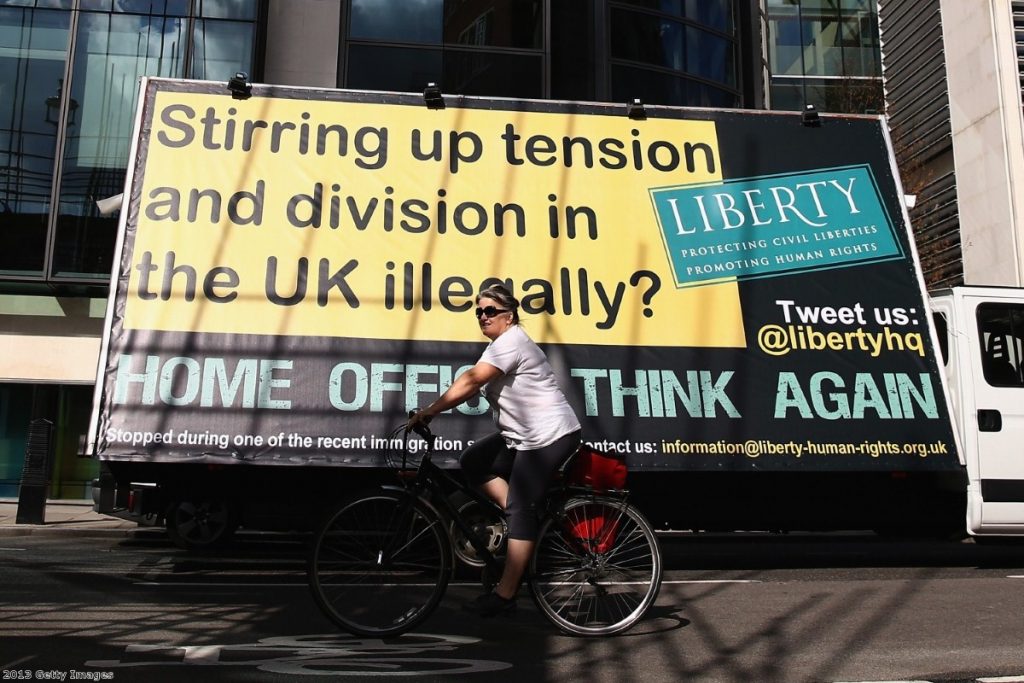May admits it: ‘Go home’ vans were a bad idea
The government's controversial 'racist van' scheme has been permanently scrapped after just one person was persuaded to leave the country.
The £10,000 billboard campaign warning illegal immigrants to "go home or face arrest" was piloted in six London boroughs earlier this year.
One Pakistani man contacted the Home Office over the summer after reading about the campaign in the Guardian. He had not seen any of the vans himself.
Theresa May today admitted the scheme had not worked.
"I think politicians should be willing to step up to the plate and say when something actually hasn't been a good idea," she told the House of Commons.
"We won't be rolling out the vans. They were too much of a blunt instrument," she added.
The scheme had faced strong opposition from the Conservative's Liberal Democrat coalition partners, who claimed not to have been aware of the pilot until it began.
The Lib Dems's today welcomed May's decision:
"This is a failed project and the Home Office should hold their hands up and admit it was wrong both practically and morally," party president Tim Farron said.
"It is important that our borders are protected and secure but this policy – driving a van around some of the most diverse communities in London – is not the way to deliver that," he added.
Earlier this month the Advertising Standards Authority (ASA) ruled that claims about arrest numbers on the adverts, were inaccurate and should not be repeated.
"The ad must not appear again in its current form," the ASA report said.
The government plans to push ahead with a separate scheme to text illegal immigrants urging them to go home.
This scheme also caused controversy after a number of British citizens were texted in error.
It has met with surprise opposition from Ukip, whose leader Nigel Farage described the texts as "utterly repugnant" and "the sort of behaviour one would expect from a fascistic police state".
The Home Office say they have received around 140 complaints about the scheme but insist only 14 people out of a total of 58,800 were contacted in error.





-01.png)